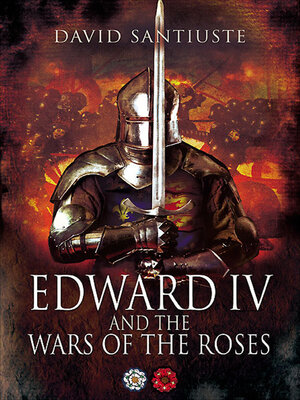
Sign up to save your library
With an OverDrive account, you can save your favorite libraries for at-a-glance information about availability. Find out more about OverDrive accounts.
Find this title in Libby, the library reading app by OverDrive.



Search for a digital library with this title
Title found at these libraries:
| Library Name | Distance |
|---|---|
| Loading... |
This fascinating account of an unsung English monarch and military leader is “a pleasing and well-informed appraisal of the first Yorkist king” (Dr. Michael Jones, author of Bosworth 1485: Psychology of a Battle).
Indisputably the most effective general of the Wars of the Roses in fifteenth-century England, King Edward IV died in his bed, undefeated in battle. Yet he has never been accorded the martial reputation of other English warrior kings such as Henry V. It has been suggested that perhaps he lacked the personal discipline expected of a truly great army commander.
But, as the author shows in this perceptive and highly readable new study, Edward was a formidable military leader whose strengths and subtleties have never been fully recognized—perhaps because he fought most of his battles against his own people in a civil war.
This reassessment of Edward’s military skill—and of the Wars of the Roses in which he played such a vital part—provides fascinating insight into Edward the man as well as the politician and battlefield commander. Based on contemporary sources and the latest scholarly research, Edward IV and the Wars of the Roses stands as “a valuable and thought-provoking addition to the canon, which ought to become required reading for anyone interested in the reign of the first Yorkist monarch” (The Ricardian).
Indisputably the most effective general of the Wars of the Roses in fifteenth-century England, King Edward IV died in his bed, undefeated in battle. Yet he has never been accorded the martial reputation of other English warrior kings such as Henry V. It has been suggested that perhaps he lacked the personal discipline expected of a truly great army commander.
But, as the author shows in this perceptive and highly readable new study, Edward was a formidable military leader whose strengths and subtleties have never been fully recognized—perhaps because he fought most of his battles against his own people in a civil war.
This reassessment of Edward’s military skill—and of the Wars of the Roses in which he played such a vital part—provides fascinating insight into Edward the man as well as the politician and battlefield commander. Based on contemporary sources and the latest scholarly research, Edward IV and the Wars of the Roses stands as “a valuable and thought-provoking addition to the canon, which ought to become required reading for anyone interested in the reign of the first Yorkist monarch” (The Ricardian).







